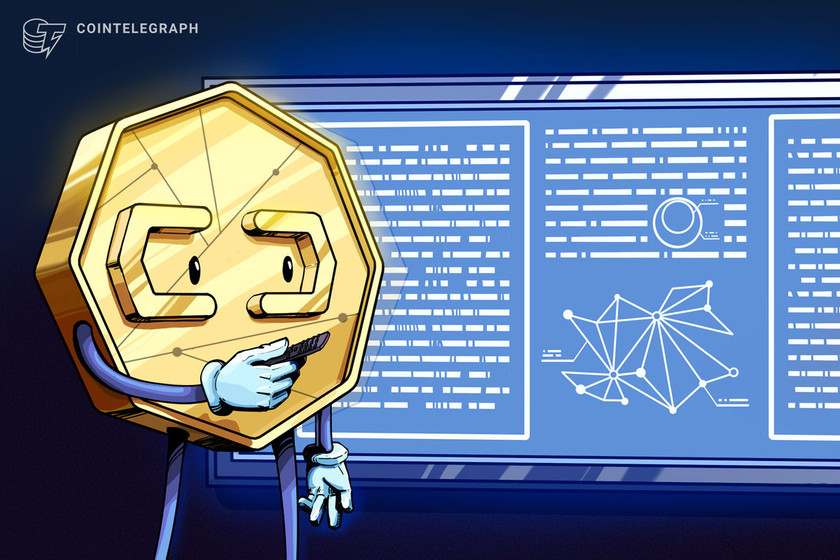Top 7 legal and compliance jobs in the crypto market
Cryptocurrencies are a rapidly growing market that is changing how people invest, buy and sell goods and services, and transfer money. However, with the growth of this market comes an increasing need for legal and regulatory compliance, particularly concerning issues such as money laundering, fraud and data protection.
As a result, there is a demand in the cryptocurrency sector for legal and compliance specialists. The positions listed below are just a few examples of the various legal and compliance positions available in the cryptocurrency sector. Each one is crucial to ensuring that the market functions fairly, openly and lawfully.
Compliance officer
A compliance officer in the crypto market is responsible for ensuring that the company complies with all relevant laws and regulations, including Anti-Money Laundering (AML) and Know Your Customer (KYC) requirements.
Knowing the relevant laws and regulations, having strong analytical and problem-solving abilities, and having the capacity to effectively interact with internal and external stakeholders are all necessary qualifications for this position.
Legal counsel
A legal counsel in the crypto market provides legal advice and support to the company on a range of legal issues, including regulatory compliance, contracts, intellectual property, and data protection.
Legal counsels in the crypto world require unique skills due to the complex and evolving nature of the cryptocurrency market. This also entails technological and legal skills. Legal counsels need to know the rules and legislation that apply to cryptocurrencies and other digital assets, as well as the underlying technologies like blockchain and smart contracts. Additionally, they must be able to handle the dynamic regulatory environment of the cryptocurrency business.
They must also have exceptional analytical and problem-solving abilities to decipher complicated legal and technical data, giving clients clear and succinct advice. Additionally, legal counsels must have strong communication and negotiation skills to represent clients effectively in legal proceedings or negotiations.
Compliance analyst
A compliance analyst in the crypto market is responsible for monitoring the company’s compliance with regulatory requirements, conducting risk assessments, and developing and implementing compliance policies and procedures.
Skills required for this role include strong analytical and problem-solving skills, knowledge of relevant laws and regulations, and the ability to work independently and as part of a team.
KYC/AML analyst
A KYC/AML analyst checks consumers to ensure they adhere to AML and KYC standards in the crypto market. KYC/AML analysts in the crypto market require attention to detail, knowledge of regulations, risk assessment, investigative skills, data analysis, and communication skills to ensure compliance with Anti-Money Laundering and Know Your Customer requirements.

Related: What is KYC, and why do crypto exchanges require it?
Regulatory affairs manager
A regulatory affairs manager in the crypto market is responsible for monitoring regulatory developments, analyzing the impact on the company and developing strategies to ensure compliance.
Regulatory affairs managers in the crypto industry require skills such as adeptness with compliance frameworks, knowledge of regulatory policies, proficiency in navigating legal requirements and the ability to develop strategic solutions to meet regulatory obligations.
Chief compliance officer
The chief compliance officer in the crypto market is responsible for overseeing the company’s compliance function, ensuring that the company complies with all relevant laws and regulations, and developing and implementing compliance policies and procedures.
Related: How are metaverse assets taxed?
Chief compliance officers in the crypto market require skills such as leadership, stakeholder management, strategic planning, risk assessment, and adeptness with compliance frameworks and regulatory policies to ensure effective compliance management and risk mitigation.
Data protection officer
A data protection officer in the crypto market is responsible for ensuring that the company complies with data protection laws and regulations, such as the General Data Protection Regulation (GDPR).
Learning about General Data Protection Regulation.
The GDPR was developed on 7 principles:
1) lawfulness, fairness and transparency
2) purpose limitation
3) data minimization
4) accuracy
5) storage limitation
6) integrity and confidentiality
7) accountability.— Cherry (@ImaNjokko) March 25, 2023
Data protection officers in the crypto industry require advanced knowledge of privacy regulations, expertise in data governance, proficiency in implementing security protocols, and the ability to ensure data confidentiality, integrity and availability.









